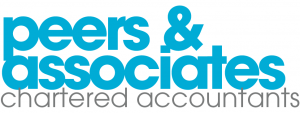Is it more than just accounts and tax??
Looking ahead to the new tax year
The 6th April 2013 brings the start of the new tax year – combined with the recent Budget now is the best time to review and reflect on how such changes can affect you and your business in the year to come..
Tax Rates and Charges
Reflection on the tax rates and charges announced within the budget.
Income Tax
For the year from April 2013 the personal allowance has increased to £9,440 which means you can now earn more tax-free. After deducting the personal allowance from your total income tax will be due at 20% on the next £32,010. Above this amount the income tax rate increases to 40% and then 45% on income over £150,000 – bear in mind however that your personal allowance will decrease for earnings over £100,000. Moving forward, it has been announced that from April 2014 the personal allowance will increase to £10,000 which is a year earlier than previously anticipated.
VAT
From April 2013, the vat registration threshold increases to £79,000. When your business has a turnover of this amount within a 12 month period you will need to register for VAT.
Small Business – self employed
As a self employed sole trader you will pay income tax on your income as above and continue to pay class 2 and 4 national insurance. The class 2 national will increase to £2.70 week and class 4 is 9% on income over £7,755 up to £41,450 where it decreases to 2%. If your earnings from self employment are less than £5,725 you can apply for a small earnings exemption from class 2 national insurance.
Small Business – limited company
We find that it is beneficial for directors of limited companies to pay themselves a small salary with any addition money being taken from the company profits as dividends as this is the most tax efficient method. For example, if you paid a salary from April 2013 of £641 a month you can take an additional £30,382 of dividends before any higher rate tax is due. The amount of dividends that can be taken is dependent on the post corporation tax profits that are available in your business. The current rate of corporation tax for small businesses remains unchanged at 20%.
Speaking to your accountant will mean that the most tax efficient method is chosen.
Other important changes that may affect your business.
NI Rebate for Employers
An allowance which will be welcomed from April 2014 was announced for small businesses after being handed an annual tax break worth £2,000 to encourage them to hire staff.The announcement of a £2,000 employer national Insurance tax break was announced meaning that up to this amount will be deducted from the employer’s national insurance bill.
RTI
The time has come for the biggest change in the UK tax system in year starts in April 2013 with the roll out of Real Time Information (RTI). The new method of reporting PAYE will affect all businesses employing staff – it is important to speak to a payroll clerk to ensure you are reporting your payroll correctly.
Employers need to make sure that they are prepared for RTI and need to ensure that their payroll information is complete and accurate and that they are using RTI ready software.
Growth Vouchers
The chancellor advised that there would be a £30million pot for growth vouchers which is a scheme to help provide small businesses with the advice that they need to grow succesfully. The scheme aims to target a number of specific areas of advice such as making a successful loan application to a bank or taking on an employee”.
Simplified Income tax for self employed sole traders & partnerships
More details of this will follow soon when the full details are avaialble but this is a proposal which has been under discussion for some time. The proposal aims to implement a new system of accounting for self employed sole traders and partnerships to simplify the rules.
The new system means that the accounts can be prepared on the cash flow basis (as and when money is paid out and received) rather than the accruals basis which the accounts are currently prepared under. It will be necessary to speak to a tax advisor or accountant to check regarding the rules of using the new approach.
Child Benefit Tax Charge
Where one or the other partner in a relationship has an annual income of more than £50,000 and where either party receives child benefit, a child benefit tax charge of 1% of the full child benefit for every £100 of income over £50,000 will apply. If you earn over £50,000 and receive child benefit this will need to be declared by completing a self assessment each year and if you haven’t previously completed a self assessment you will need to reggister to complete this before 5th October 2013 or you may face a penalty.
*this information is provided for guidance only and no liability is accepted for acting on this information – you should always seek advice from a tax advisor or accountant*
